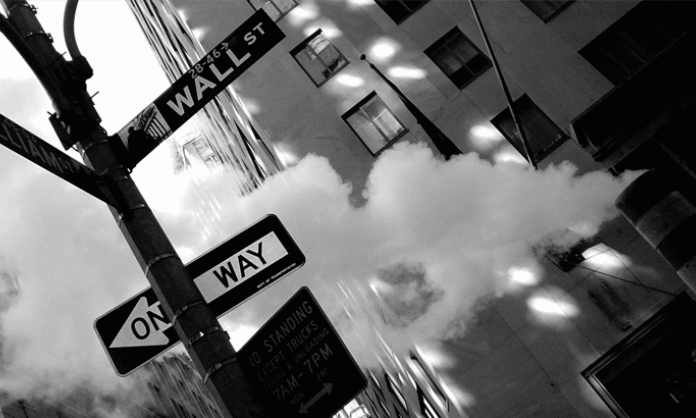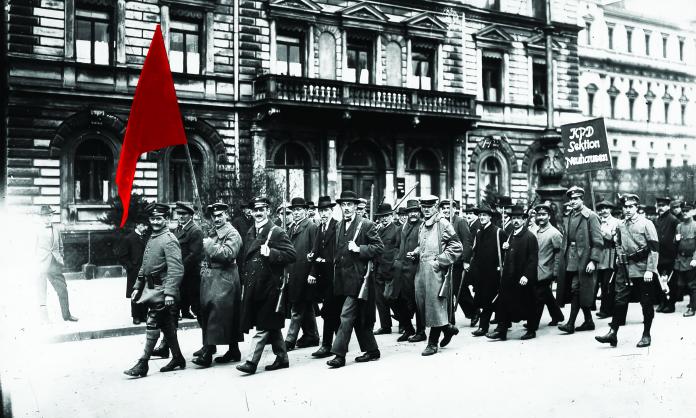An article by a Harvard University economics professor, Greg Mankiw, which is scheduled for publication in an academic journal, was posted on Mankiw’s blog in June and has aroused some controversy.
Mankiw’s article is entitled “Defense of the One Percent”. Responding to public disquiet at gross and growing inequality, Mankiw argues that the obscene wealth of the one percent is deserved and/or good for economic “efficiency”.
He can make this argument only because he proceeds from standard academic economic theory, one of whose main functions is to prevent people understanding what is really happening. Standard capitalist economics assumes that we are all nothing but buyers and sellers in a market. This neatly does away with realities like the existence of classes and exploitation. Then Mankiw can claim that the “superstar incomes” of the one percent are just the wages of “skilled labour” that is unusually productive or in short supply.
But the wealth of the one percent doesn’t come from their own labour. Aside from the small minority at the top of the entertainment field (including sport), the members of the one percent don’t perform any productive labour. Working people (which includes working farmers and tradespeople) produce all of the values that make up a country’s GDP.
In a very small business, the boss may actually help in production part of the time. But the CEOs of big corporations don’t contribute anything to production. Their primary function is to get workers to produce as much as possible for the lowest possible wage. That increases the profits of the owners, and the CEOs’ payment for doing that is not a wage or salary, but a share of the profits that come from exploiting workers.
The idea that bankers, share traders, hedge fund speculators and their ilk might make what Mankiw calls “significant economic contributions” is even more grotesque. That sort of activity doesn’t increase the wealth of the human race in the slightest; no one has ever eaten or worn or travelled on a credit default swap or a pork belly future or a currency exchange rate.
All that the “financial sector” does is buy and sell things, in the process trying to cheat each other and, even more so, cheat the rest of us. What they buy and sell comes in basically two categories. One is things that workers have produced. This can be an aspect of trade, moving products from their origin to where they are wanted. But actual trade, as opposed to speculating about what might happen in someone else’s trading activity, has a declining importance in the financial sector.
What the sector mostly buys and sells comes under a second category: claims to the profits that capitalists obtain from working people. These are bought and sold in many different forms. One of the simplest – the price of a share in a corporation – is based on how much profit buyers and sellers think the corporation will be able to extract from the labour performed by its workers. So a share is basically a right to future profits.
Investing in shares is therefore inherently speculative: the expected future profits might not eventuate. Over several decades, but especially since 2008, financial markets have invented more and more “derivatives” that allow capitalists to gamble not merely on a corporation’s profits but on things like the ability of a corporation or a house buyer to pay its/his/her debts, or how much the exchange rate between the Danish krone and the East Caribbean dollar will change. That is, the “financial sector” is a very big casino.
If you or I decide to have a flutter in a casino, of course we hope to win. But rationally we know that the odds are against us: if we go back regularly, we will end up poorer. Why is it possible for some of the one percent to get richer and richer by gambling in the casino called “the financial sector”, whereas they would lose eventually in one of James Packer’s casinos?
The answer is that in this scenario the gamblers don’t produce the money they play with. The labour of working people is constantly putting more profits into the casino, so the odds are in favour of the gamblers. Individual gamblers can lose, but they lose to other gamblers; working people never win.
In “normal” times, it can be hard to see through the arcane “financial products” to the underlying exploitation. But when something like the 2008 financial crisis comes along, governments make it clear by taking our tax money and handing it over directly to the big banks.
The capitalist market normally guarantees increasing exploitation. When something disrupts that, the capitalist governments rush in to continue the exploitation. That is why ending gross inequality will require ending the dominance of the market and the rule of capitalists.











